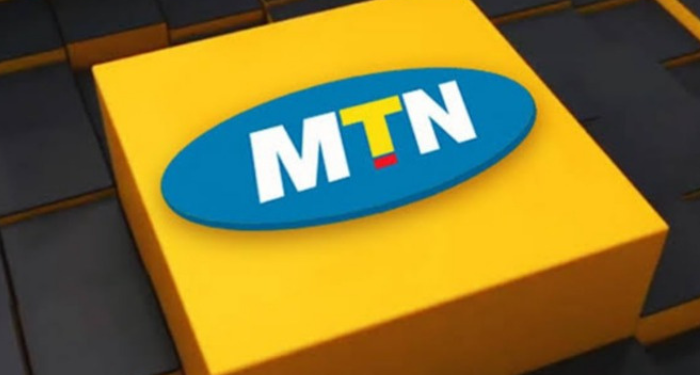The recent financial disclosures by MTN Nigeria Plc paint a stark picture of the economic challenges gripping the nation. The telecommunications giant, a cornerstone of Nigeria’s digital infrastructure, reported a staggering loss before tax of $118.5 million, equivalent to N177.8 billion, a stark contrast from its pre-tax profit of N518.8 billion just a year prior. This abrupt downturn has sent shockwaves through the market, erasing shareholders’ funds and signaling a troubling precedent for one of Nigeria’s leading companies.
At the heart of MTN Nigeria’s woes lies a profound and ominous shift in the country’s economic dynamics, chiefly marked by the precipitous devaluation of the Nigerian naira. From trading at approximately 500 naira to the dollar a mere year ago, the currency has now plummeted to an alarming rate of 1500 naira to the dollar, a threefold increase in depreciation. This substantial devaluation has profound implications for companies heavily reliant on foreign currency transactions to sustain operations.
According to MTN, “the loss was significantly due to operational changes to the Nigerian Foreign exchange market, including the abolishment of the segmented/parallel structure announced by CBN in June 2023.”
MTN also stated that it has used an official (NAFEM) exchange rate of N907.11/$1 as of 31 December 2023 suggesting losss could be wider if the current exchange rate between the naira and dollar persis by the end of March when it publishes its Q1 results.
Key Highlights
- Revenue (2023 vs. 2022): N2.469 trillion vs. N2.012 trillion, +22.69% YoY.
- Operating Profit (2023 vs. 2022): N773.660 billion vs. N734.164 billion, +5.38% YoY
- Finance Income (2023 vs. 2022): N25.815 billion vs. N13.768 billion, +87.50% YoY
- Finance Cost (2023 vs. 2022): N236.927 billion vs. N147.287 billion, +60.86% YoY
- Net FX Loss (2023 vs. 2022): N740.434 billion vs. N81.822 billion, +804.93% YoY
- (Loss)/Profit after tax (2023 vs. 2022): -N137.021 billion vs. N348.727 billion, -139.29% YoY
- (Loss)/Earnings per share (2023 vs. 2022): -N6.38 vs. N16.76, -138.07% YoY
- Total Borrowing (2023 vs. 2022): N1.177 trillion vs. N689.673 billion, +70.69% YoY
- Total subscribers increased by 5.3% to 79.7 million
- Active data users increased by 12.7% to 44.6 million
- Active mobile money (MoMo PSB) wallets increased by 163.2% to 5.3 million
- Earnings before interest, tax, depreciation, and amortisation (EBITDA) grew by 12.3% to N1.2 trillion
- EBITDA margin decreased by 4.5 percentage points (pp) to 48.7%
- Net loss for the year has resulted in a depletion of its retained earnings and shareholders’ fund to negative N208.0 billion and N40.8 billion, respectively
The financial metrics unveiled by MTN Nigeria’s annual report serve as a microcosm of the broader economic tumult gripping the nation. Despite a commendable 22.69% year-on-year revenue growth, the company grappled with a myriad of challenges, including a staggering 804.93% surge in net foreign exchange losses. The erosion of profitability, coupled with a drastic decline in earnings per share and a substantial increase in borrowing, paints a sobering portrait of the economic headwinds confronting Nigerian enterprises.
Furthermore, the decision by MTN Nigeria’s board to forego a final dividend payment underscores the severity of the crisis. The substantial depletion of retained earnings and shareholders’ funds, compounded by the currency devaluation, has left stakeholders reeling and uncertain about the company’s future trajectory. Shareholders, already grappling with a 15.6% year-to-date decline in stock value, face mounting anxieties amid a volatile economic climate characterized by geopolitical disruptions and inflationary pressures.
MTN Nigeria’s narrative serves as a cautionary tale, highlighting the perils of operating within an economy beset by currency devaluation and fiscal instability. The company’s commentary elucidates the myriad challenges confronting businesses in Nigeria, ranging from soaring inflation rates to fuel price hikes and foreign exchange shortages. These compounding factors have catalyzed a perfect storm, exacting a heavy toll on corporate profitability and investor confidence.
Looking ahead, the path to recovery for MTN Nigeria and other corporations navigating Nigeria’s economic landscape remains fraught with uncertainty. While the company’s resilience in generating free cash flow offers a glimmer of hope, the enduring specter of currency devaluation looms large. As stakeholders brace for the release of MTN Nigeria’s first-quarter results, the reverberations of the naira’s devaluation serve as a stark reminder of the urgent need for fiscal reforms and economic stability in Nigeria.
